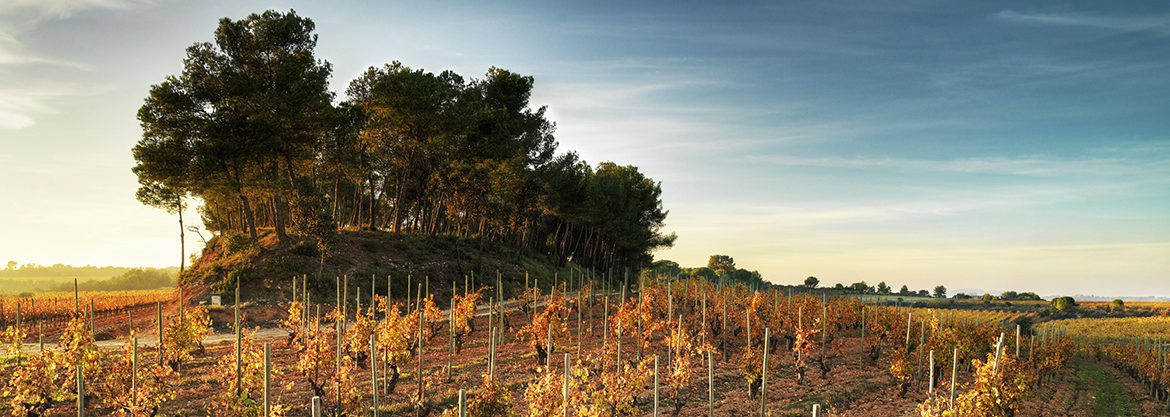
For almost a century, Recaredo has maintained a firm commitment: to produce terroir wines that reflect the landscapes of the Alt Penedès as honestly and transparently as possible. They make only vintage brut nature cavas with a distinctive character marked by long ageing.
Recaredo seek to ensure the natural balance of the vine in the vineyard, aiming to achieve the best expression of every individual vintage. Therefore, the viticulture is based on dry farming with grapes harvested by hand. They prioritise respect for biodiversity and the environment by cultivating vines without using herbicides or insecticides and only employing natural organic fertilisers. When ripening begins, the grapes are analysed vine by vine, plot by plot, the goal being to harvest the grapes at their optimum point of ripening, to obtain the most balanced musts and the very finest wines. The entire harvesting process is carried out by hand, since it is only in this way that proper care for the grape until pressing can be guaranteed and premature oxidation (a characteristic of so many cheap cavas) can be avoided. All these vines are close to the cellars and transportation of the grapes is carried out using small trailers. The grape must is obtained by gently pressing the grapes, thereby obtaining the highest-quality part of the must. Debourbage follows and then the first fermentation where the yeasts transform the sugars to produce the base wine. Over the winter, the wine remains in contact with its finest lees, giving it volume and body and becomes naturally clarified. The grape juice from the oldest Xarel·lo vines ferment in oak barrels yielding structure and greater complexity for longer-aged cavas. Some of the base wine is aged in oak barrels for some months. This wine will be used to add greater finesse and structure to the final blending.
The secondary fermentation occurs in the bottle, with the yeasts transforming the sugar to produce the cava’s bubbles and foam. The subsequent interaction of the yeasts or the lees and the wine during the in-bottle ageing will give more complex flavours and aromas. The riddling process, a gentle, precise daily movement, always carried out by hand in the classic, traditional racks, allows the lees to descend to the bottle’s cork and prepares the bottle for the expulsion of the lees: the disgorging which consists in the expulsion of the lees accumulated during the ageing process. At Recaredo, this is carried out on an exclusively manual basis, at the cellars’ natural temperature, without freezing the necks of the bottles
The Land
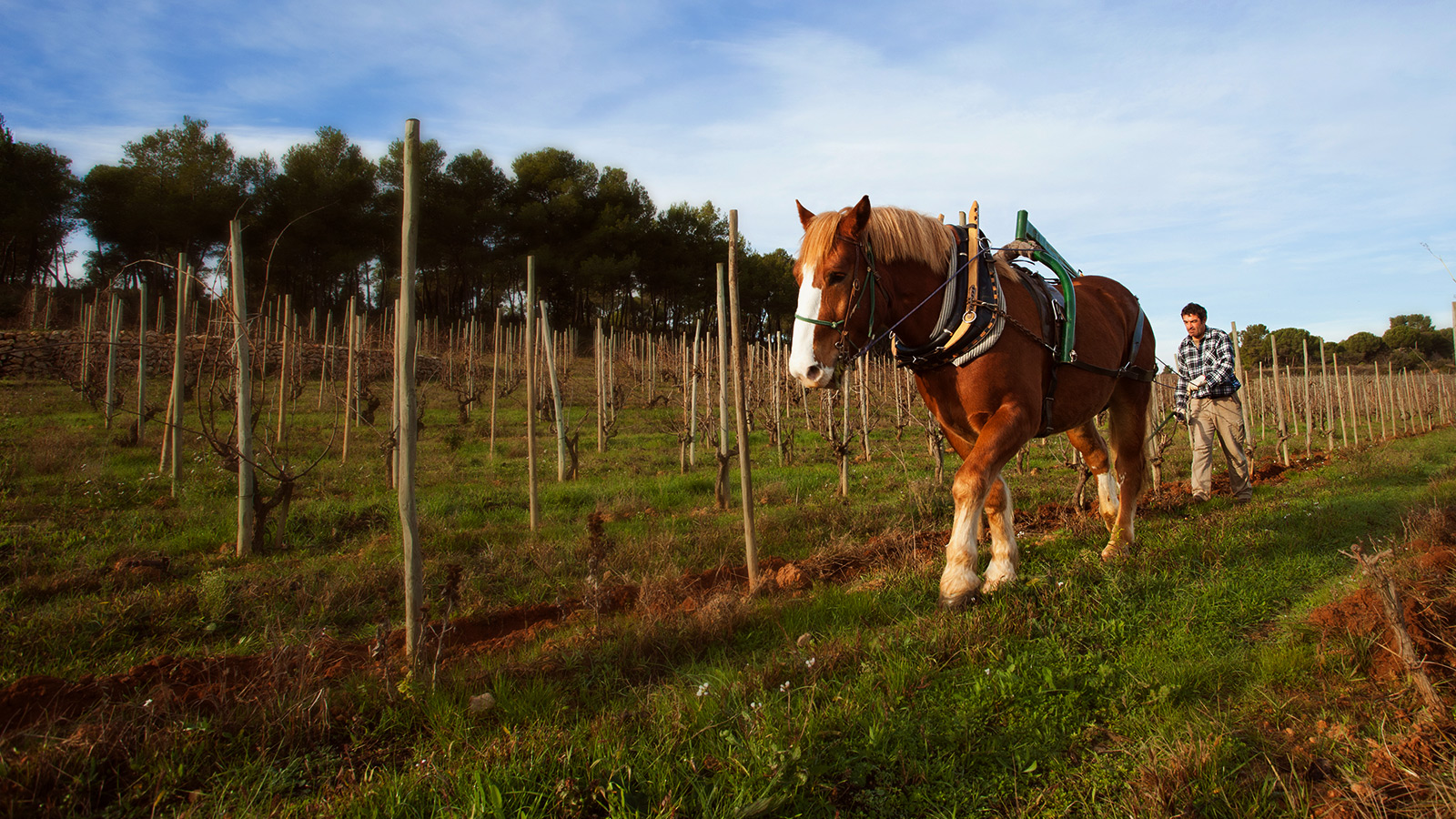
The hillsides around the Bitlles River are home to a mosaic of vineyards, a total of 50 hectares in the easternmost part of the Penedès region. The Bitlles runs through a terrain broken by ravines, forests and hills. The mainly calcareous terrain is characterised by disjointed landscapes, dominated by the imposing presence of the mountain of Montserrat.
The production volumes obtained from these soils are quite low, but of high quality. The soils are loamy: a balanced mix of sands and clays that facilitates drainage when there’s heavy rain and water retention during periods of drought. Those of Turo d’en Mota have a very low percentage of organic matter and a high active lime content – the vines here being pure Xarel.lo, planted in 1940.
Biodynamics has become an essential part of the discovering the true identity of the vineyard and Recaredo’s mission is to maintain the constant pursuit of balance in the ecosystem, and a respect for biodiversity. As they say: “To move forward, we take a few steps back, observing and listening to nature to find answers. Without chemical fertilisers, without herbicides, without fungicides – only elements of natural origin. Because there can be no wines that capture the essence of the landscape unless we care for and respect the land itself.”
They treat the vines with medicinal plants, use extracts made mainly from horsetail, nettles and chamomile, whilst infusions, decoctions and macerations are applied to control the presence of mould and strengthen the vine’s natural defences. Vegetation cover is allowed to grow spontaneously between the vines, loosening the soil, regulating water retention and drainage (very important in the dry farming system), and fostering biodiversity the vineyard ecosystem. The cover is also a perfect ally in efforts to prevent soil erosion.
Manual disgorgement at the naturally cool temperature of the cellars
With the kind of skill that comes only from experience, the disgorger releases the lees at the natural temperature of the cellars, without freezing the neck of the bottle. Without exception, every bottle of sparkling wine produced by Recaredo is disgorged by hand in a ritual marked by rhythmic fizzing pops. Disgorgement is the final step before bottles are corked. Today, Recaredo’s winemaking professionals are keeping alive this craft, which is an exercise in skilled professionalism and respect for the environment.
The Tasting
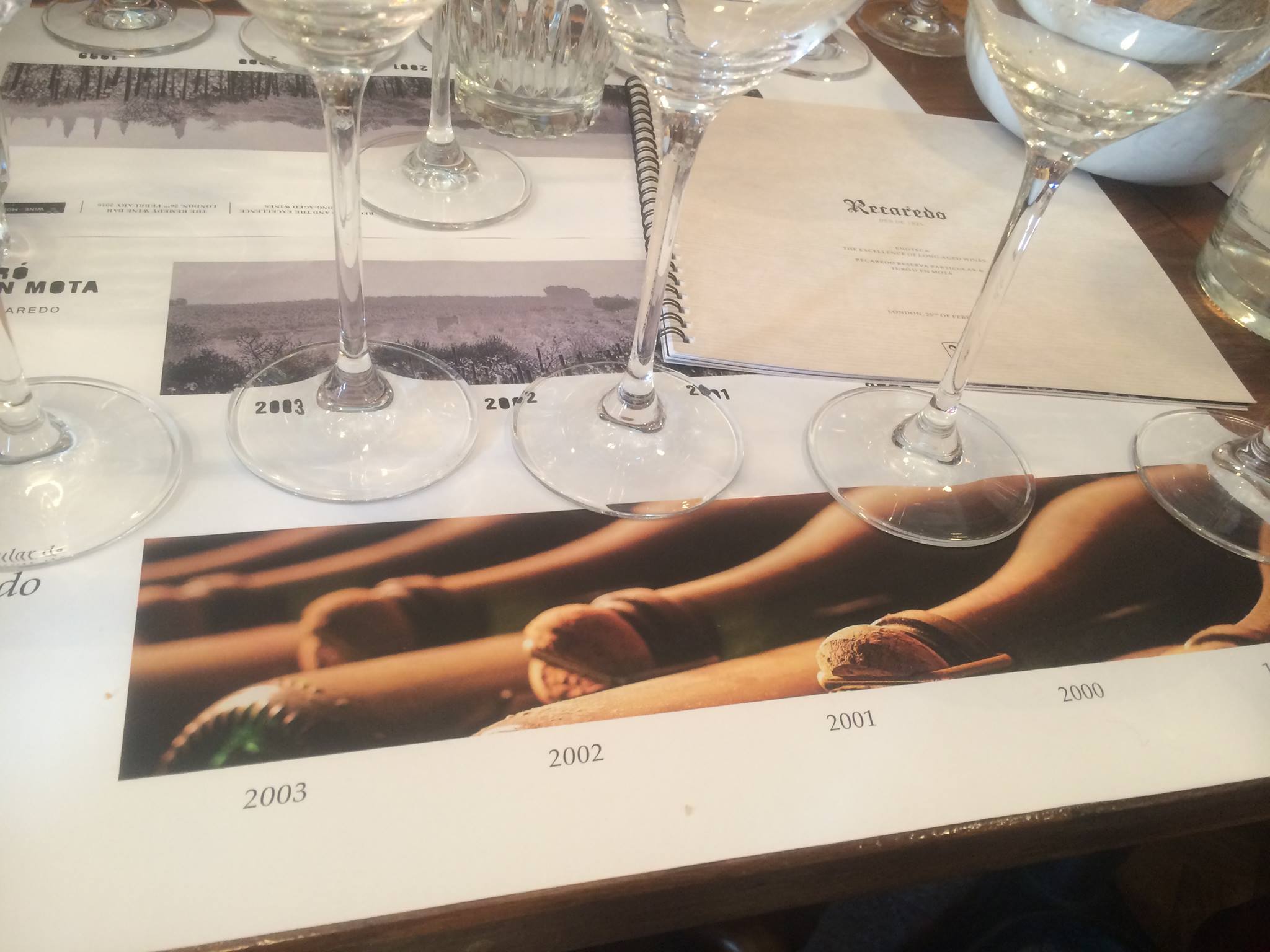
The tasting was called “The Excellence of Long Aged Wines” and featured the Reserva Particular de Recaredo and the fabulous Turo d’en Mota. All the wines at The Remedy event were disgorged by Jordi Mata who has been doing this since 17 – he can uncork 240 bottles per hour – which is surely exceeding the speed limit.
Vintage 2003
“If we want our landscape to appear we don’t want sugar in our wine.” (Ton Mata)
A hot vintage with lower than usual rainfall and a hugely difficult one. The Reserva Particular that we tasted had 11 years and 9 months of ageing and comprised 36% Xarel.lo, and64% Macabeu was still fresh, subtle with a lovely herbal dimension. months in the bottles. All the “Xarel·lo” grapes are fermented in oak barrels for added complexity. Well-upholstered wine with green plum and apple aromas. The palate is deep, pure, structured, vinous, long and rich with resonant acidity
The Turo d’en Mota is from a single old plot of Xarel.lo. An extraordinary wine with aromas and flavours of the Mediterranean. Think hawthorn, almond-blossom, sweet hay, fennel, warm earth and green herbs. Green apples and lemon curd. Amazing length.
Vintage 2002
“We look for soft bubbles, integrated, dry; we play with bitterness and texture not with sugar”. (Ton Mata)
2002 was characterised by lots of rain and cool temperatures (almost two degrees cooler than 03). As befits the vintage the wines are more linear and mineral edged.
The Xarel.lo was fermented in old barrels (6-7 years old) for 15 days, no malolactic allows micro-oxygenation. Lots of tension and delicacy, the wine changes with exposure to the air – notes of oyster shell, sea breeze, stoniness, complex and reserved with lots of angles.
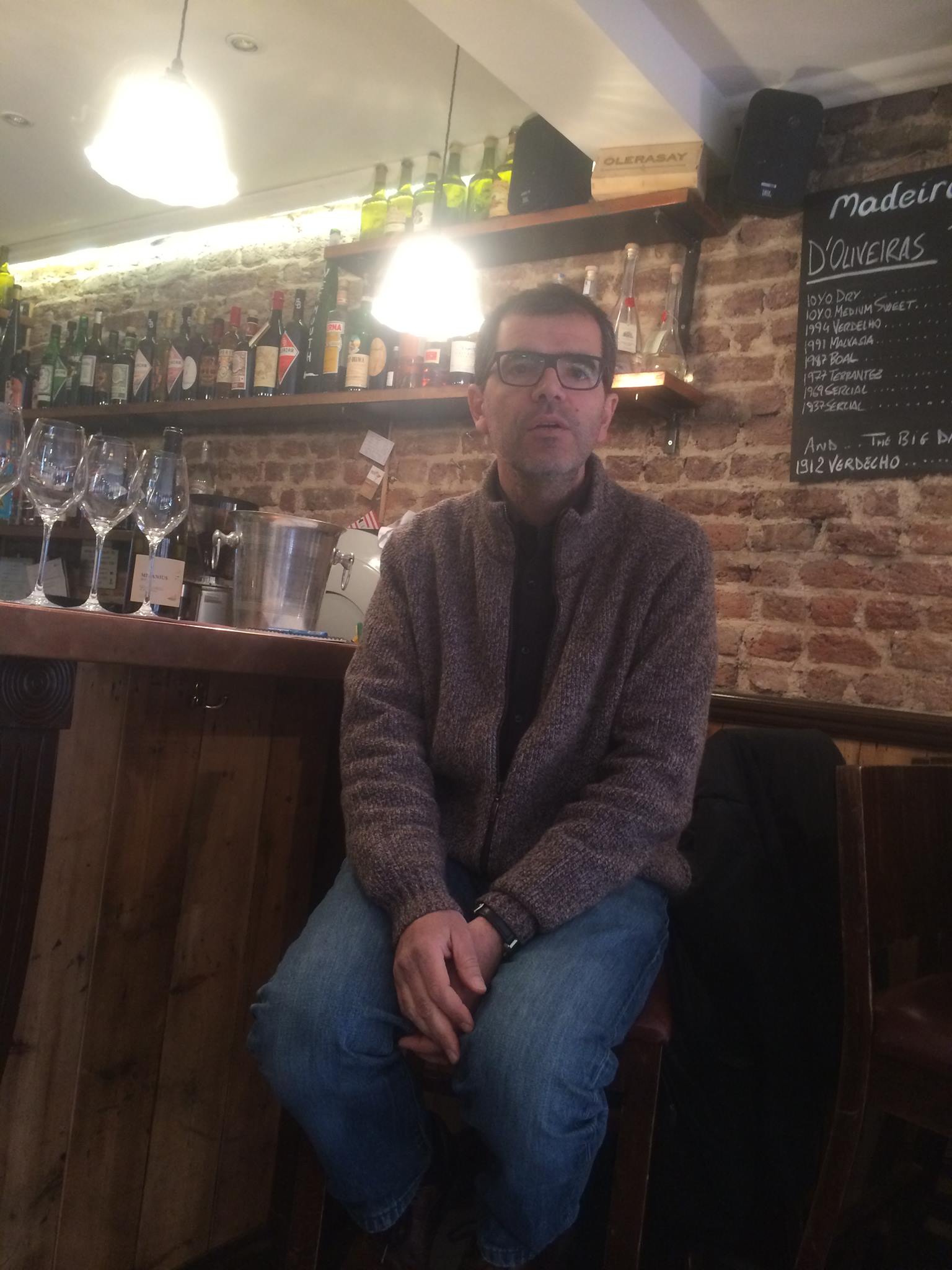
Vintage 2001
“We are tasting white wines rather than sparkling ones.” (Ton Mata)
Reserva Particular de Recaredo
13 years and 9 months of ageing on lees. The super vintage revealed in the unctuousness of the wine. More fruit – apple, pear and yellow plum. Delicious, complex and subtle with notes of coco bean.
The Turo displayed fantastic concentration and great purity. Tremendous length. Sourced from a single vineyard less than one hectare in size (named after a local hill) situated perhaps in the most elite section of the domaine in Sant Sadurni d’Anoia. The vines are very old: originally planted in 1940 on calcareous soils. The grapes are crushed and then the juice is fermented in oak casks where it remained for 45 days with lees stirring and undergoes. The bouquet is more like a dry white Burgundy than a Cava, with hints of honeysuckle, fresh-baked brioche, dried apricot, lemon peel and a touch of jasmine.
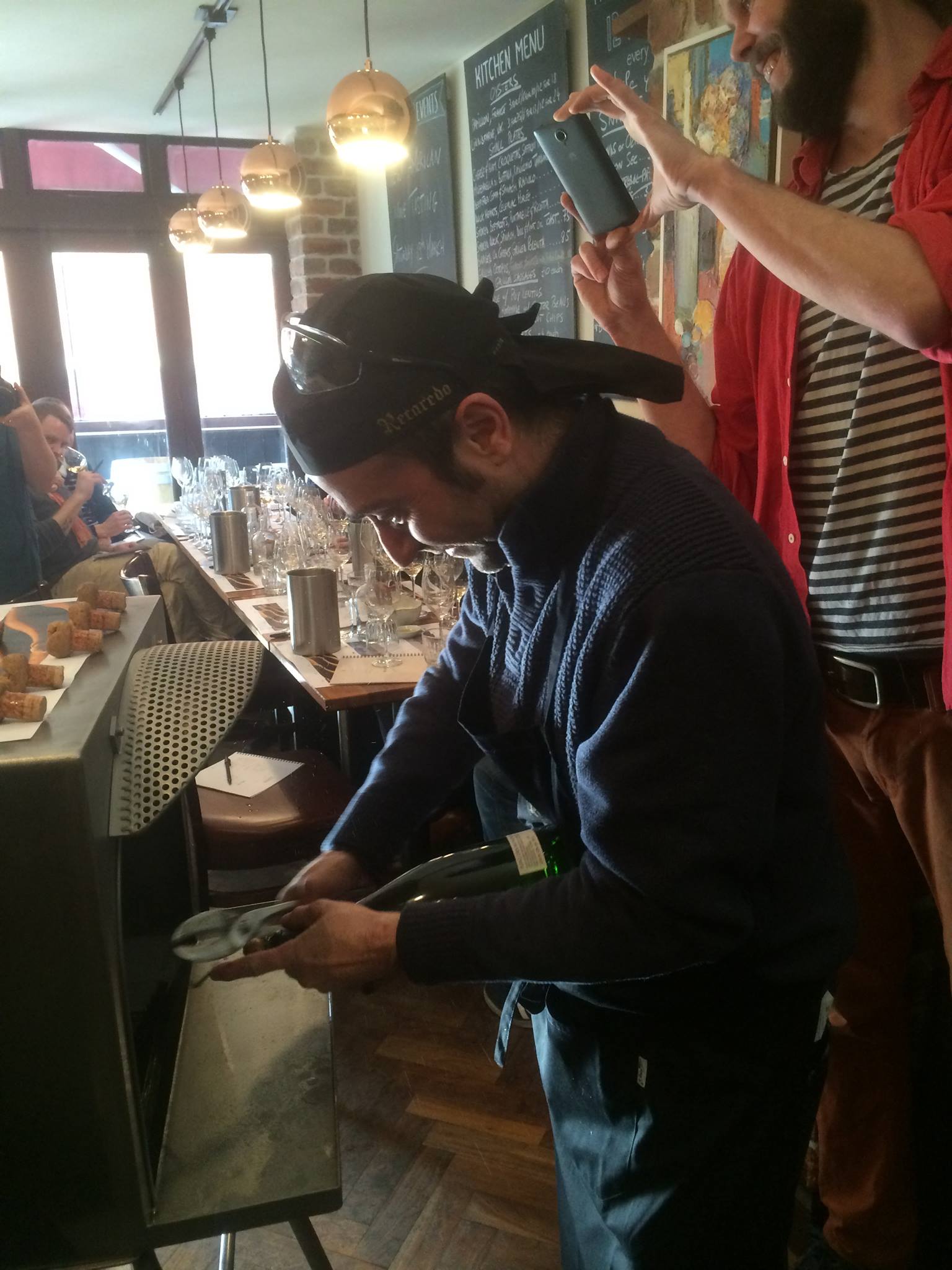
Vintage 2000
Reserva Particular de Recaredo
Classic, style, mineral and floral, perfect balance in the mouth.
Turo d’en Mota
Broad palate, ginger, crème brulee (crème Catalan), caramel, toast – depth and development.
Vintage 1999
Reserva Particular de Recaredo
A mere 15 years and 9 months of ageing! Rich, masculine (for want of a better word), nutty, hints of dairy (buttermilk), a wine that still craves the Burgundy glass or the decanter.
Turo d’en Mota
The 1999 vintage of Turó d’en Mota, which would first see the light in the autumn of 2008, marks a new chapter in Recaredo’s history. Turó d’en Mota is the first cava made using a single variety of grapes (100% Xarel·lo) harvested from a single vineyard. It is also their longest-aged cava, having spent over a hundred months in contact with the lees. Turó d’en Mota is a terroir wine in the broadest sense of the term: the expression of a land characterised by highly calcareous soil and a Mediterranean microclimate, with the Xarel·lo grape variety as the undisputed protagonist, and an approach to viticulture that stresses observation over intervention. It is beautifully defined and very complex. The palate is very well-balanced with superb delineation and focus, drawing you in with subtle notes of orange peel, tangerine, beeswax and honeycomb. Long in the mouth and utterly harmonious. Forget the bubbles; this is a wine that expresses the full “tilth and husbandry of the soil”, the fabulous calcium-rich terroir and the particular climate.
This was a wonderful tasting punctuated by the thock of corks eased out by Jordi special pliers. Ton’s humility, talking about a family venture, where respect for tradition meets the spirit of enquiry. Beautiful profound wines. Beyond Cava.
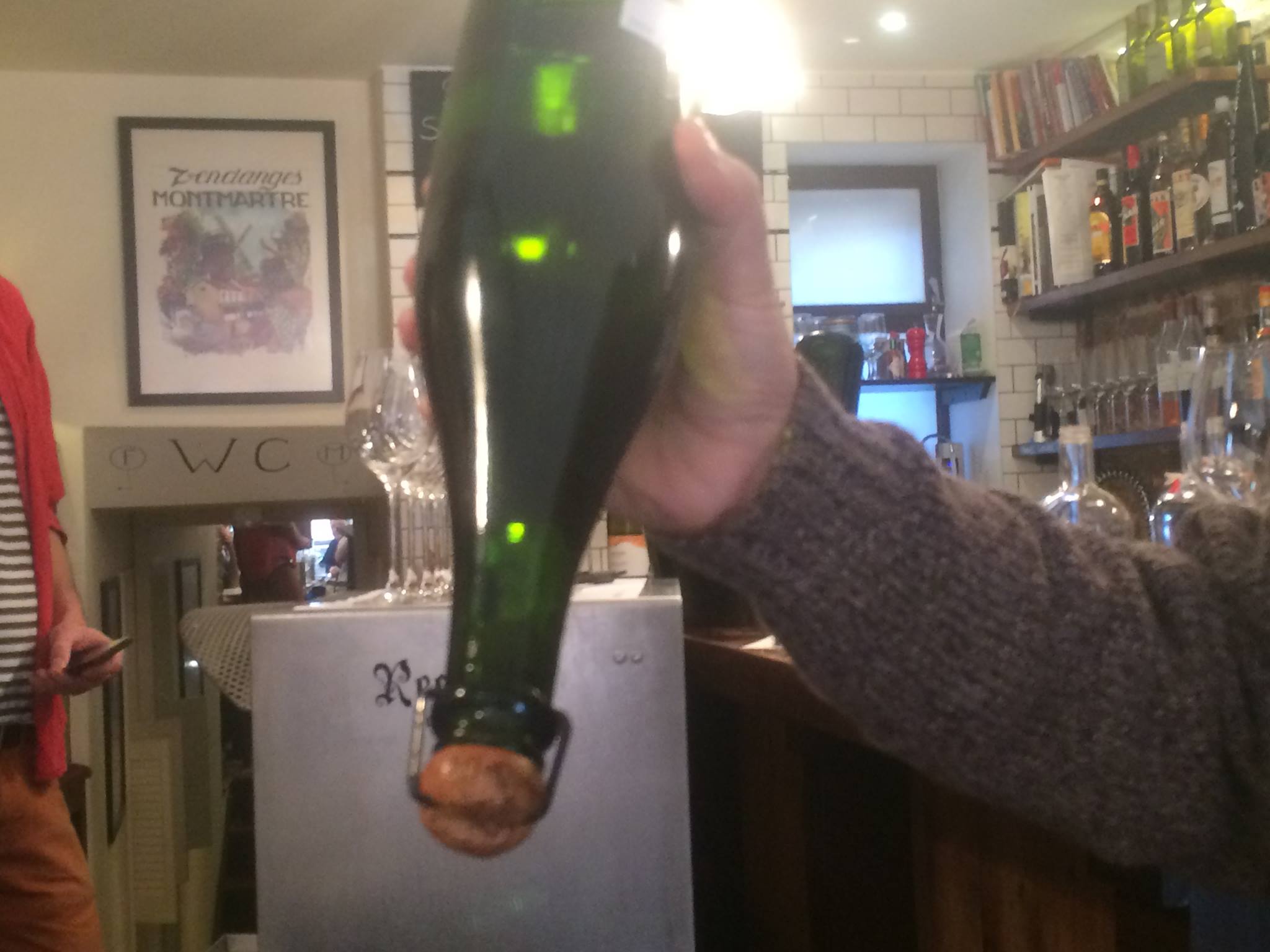
A massive thanks to Ton and Jordi and The Remedy for hosting this fantastic event.

